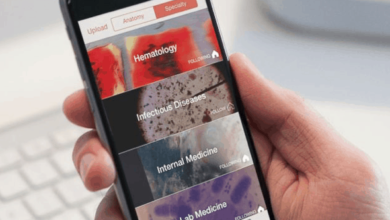By: Aamir Hussain
Many attending physicians say that the way to impress them as an MS3 is to “take ownership of your patients.” Obviously, they do not mean this in the literal sense, but they usually do not specify what this means. After all, MS3’s don’t have the authority to order labs, conduct family meetings, or administer medication unless supervised by a physician. In my experience, impressing evaluators in MS3 comes from making patients feel comfortable. Although every patient is different and learning the slight behavioral modifications needed to establish rapport with a diverse array of patients is an art in and of itself. I have provided a list of common complaints patients have about the medical system. Understanding these pet peeves and following these tips will help you ease patients suffering, and develop strong interpersonal skills.
Pet Peeve #1: Being treated like a number instead of a human being
Most of us have that one friend or family member who really “gets us.” This person knows our likes and dislikes, and can help us through difficult situations just by listening and occasionally providing some advice. In the healthcare setting, patients may not have access to such an individual. Family may not be present during certain hours, and most healthcare staff do not have the time to simply sit and listen to patients. Therefore, patients often feel like just another number.
Since this process (along with the myriad of tests and procedures) can be dehumanizing, make connecting with patients your priority as a medical student. For example, visit them after rounds to ensure they understand the plan, check in with them periodically to make sure their pain is under control, and see if there is anything you can do to make their lives easier. While this may involve “scut work,” such as getting them water, or making a quick phone call to their family or work, patients will truly appreciate this effort. This also can even improve your presentations. For example, when presenting your daily plan on surgery, you can comment on the specifics of what the patient ate and whether their diet may be advanced. Most physicians can easily pick up on a strong rapport between a medical student and a patient, and will reward your efforts.
Also, if you happen to speak the same foreign language as your patient, strike up a conversation! Many medical students are afraid to attempt a foreign language for fear of being embarrassed or making mistakes; however, patients will appreciate the effort and may feel more at ease speaking to you in their native language. Of course, avoid acting as a legal medical interpreter or attempting to explain complex medical procedures unless you are certified and very confident in your language abilities.
IRead: Navigating the Pre-Clinical Years in Medical School
Pet Peeve #2: Being seen as an “exhibit” for a rare disease
If you train in an academic teaching institution, chances are high that you will see several rare conditions. Patients with rare diseases are often glad to work with medical trainees and increase awareness of their conditions in the medical system. However, physicians may unconsciously see these patients as great “teaching opportunities,” and will invite hordes of trainees to observe their care. In the process, the patients’ preferences may become lost. As a medical student, make it a priority to ensure that the patient’s voice is heard. If they confide that they would prefer not to have visitors during certain hours, make sure that their wishes are communicated to your supervisors.
Pet Peeve #3: Lack of care coordination among multiple specialists
One of the most jarring patient experiences is lack of care coordination among multiple specialists. Providers (and especially the primary team) should make extra efforts to keep subspecialists on the same page, and ensure that patients do not receive contradictory and confusing information about their treatment. As a medical student, you should always check in with your patients and educate them about the plan of care. In addition, you should read through the daily specialist notes and push yourself to think of ways to coordinate care. For example, compile a list of labs that need to be ordered and ensure that they are collected at the same time. Nothing frustrates patients more than being stuck with needles unnecessarily, and the hospital staff can save valuable time by avoiding repeat lab draws. Suggesting such changes to your supervising team will make you stand out as a proactive student that they would enjoy having as a future colleague!
IRead: A Day In the Life of an OB-GYN
One of my attendings used to say, “As bad as your day might get as an MS3, it’s still nothing compared to what patients face.” Keep that (and these patient pet peeves) in mind, and get ready to improve patient care while impressing your clinical team on the wards!



